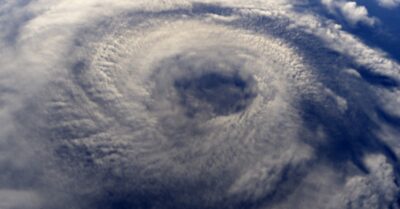Here are a few thoughts coming out of the five weeks of readings in decolonial theory that I’m doing with my Advanced Environmental Humanities class (which has been online and open to the interested public). The course is centrally concerned with the present “global moment,” and the following can be considered a short take on how this moment might best be theorized.
A note on the title of this post: Readers of my last book will know my preference for the term “AnthroCapitalocene,” or “A/Cene,” over “Anthropocene” to describe the current global predicament. Here I’m adding the coloniality dimension, which ought to make for an “Anthro-Colo-Capitalocene,” or “A/C/Cene.” The “Anthro” part of this compound term is the most questionable, since the evidence of humans being able to live well on this Earth is longstanding. It is arguably the combination of colonial globalism (Colo), unrestrained capitalism (Capitalo), and a kind of epistemological universalism (Anthro) that has led to the current crisis. But how far should we push these opaque acronyms?
In reading decolonial theory, and in particular the statements of the Zapatista liberation movement, I’ve come to realize that the metaphor of a “storm” resonates widely among those who see tribulation coming to the current order. Whether it’s in the form of revolution, some QAnon-like rapture, or the megacrisis of climate chaos — in other words, whether it’s based in reasonable predictions or fantasy — may not matter. If this is a shared perception, let’s make use of it.
Here, then, are a series of propositions for making sense of the Unfolding Storm.
1) Colonialism, for Indigenous and place-based peoples, is centrally about the loss of land and, with it, the loss of identity. It is, in a word, about the forced delinking of People from Land. In the process, both are violated. I’ve written before on the ontological priority of Land to People. For people who have maintained that relationship of priority, the process of delinking can only be experienced as deeply traumatizing.
2) Climate change and the Anthropocene predicament is a collective trauma in the course of its unfolding. Some of us are in its pre-traumatic phase (those who have thus far managed to shield themselves from its impacts). Others are in its becoming-traumatic phase (those who have lost homes or are being forced to relocate, for one reason or another). Still others are in its already-traumatic phase. The trauma is a foregone conclusion; the only question is whether, how, and to what extent one might protect oneself from it.
3) For Indigenous and postcolonial peoples, this trauma may be barely distinguishable from, and is certainly continuous with, historical traumas connected to colonization and the loss of land and identity. For these people it has been one trauma after another. And for those of them who are managing to recover languages, ceremonies, and identities, one could even say that there is a post-traumatic dimension (in the positive sense of the word) that’s already here. That suggests that they play a particularly important role in the collective task of dealing with the trauma we are, or will be, all facing in the decades to come.
In this sense, decolonization (and not just the metaphor) is not an option. It is a necessity, not just for the sake of healing wounds and righting wrongs, but for the sake of finding guidance from those who’ve been there and done that, and who’ve come out the other end.
